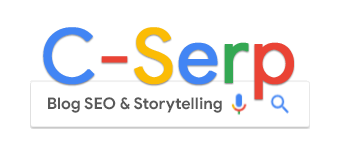Do exact match domains have value in 2025?

In the early days of SEO, owning an exact match domain (EMD) was like holding a cheat code.
If someone searched for “siamese kittens,” you could bet that siamesekittens.com would be sitting pretty at or near the top of the search results.
The algorithm heavily weighted the presence of keywords in the domain, and for a while, that simple trick delivered serious ROI.
But it’s 2025 now.
AI has reshaped search, large language models (LLMs) are rewriting how answers are generated and delivered, and the rules of the game have changed.
So, what role – if any – do exact match domains still play?
The EMD of yesteryear: Keyword first, brand second
In the early 2010s, EMDs were so powerful that entrepreneurs snapped up keyword domains like real estate.
It didn’t matter if the domain was awkward or forgettable – cheapcarinsurancequotes.com was printing traffic, and that’s what mattered.
But that short-term success came at a long-term cost: most EMDs weren’t built as brands.
They were designed to match a keyword string, not to build trust or recognition.
Then came the backlash.
Google’s 2012 EMD update specifically targeted low-quality sites using EMDs to rank without offering real value.
It didn’t kill EMDs outright but ended the gravy train for those relying on the domain name alone.
And since then, the emphasis on quality, content, and brand authority has only grown stronger.
The 2025 lens: Exact match still matters – but not like it used to
Fast forward to now, and it’s clear: exact match domains can still carry value, but that value has shifted.
If you’re launching a site today and manage to get a clean, keyword-rich domain that also feels brandable and trustworthy – great.
You’ve got a leg up in memorability and signaling relevance.
But if you’re chasing keyword matches for their own sake, the return may not justify the effort.
Here’s the shift: EMDs used to work because they matched the query.
Today, they work if they support a strong brand identity.
Dig deeper: How to choose an SEO-friendly domain name
Brand recognition is the new exact match
Search engines, especially those powered by LLMs, increasingly prioritize brand recognition and authority over simple keyword matches.
LLMs don’t just look for words – they synthesize intent, context, and known entities.
That means the domain mentioned across high-authority content, link profiles, and user conversations is more likely to surface – not because it matches a keyword but because it matches a recognized brand.
Brandable domains have a huge advantage here. They’re easier to build equity into, easier to remember, and easier to grow.
If your domain sounds like a real brand, people will treat it like one – and so will search engines.
In other words, the domain you’ve been building up as a brand is what ranks now, not just because of the words in the URL but also because of the reputation behind them.
Dig deeper: The new SEO imperative: Building your brand
Brandable beats literal
In today’s ecosystem, what’s often more valuable than a literal match is a domain that’s:
- Memorable.
- Spellable (especially over voice or radio).
- Brandable (flexible enough to evolve).
- Unique (so you can dominate search results for it).
Just a tip from someone who’s seen a few things. If your domain doesn’t pass the radio test – if people can’t easily spell it or remember it after hearing it – you’ll lose traffic.
You know how nothing ruins a good joke like the need to explain it?
The same applies to domain name spellings. And that’s not something even great SEO can fix.
Voice search, AI assistants, and podcast shoutouts all require clarity and ease of recognition.
We’re not just building for search engines anymore but for humans who engage with content across audio, video, and conversational interfaces.
When exact match still has an edge
Let’s not throw the EMD baby out with the bathwater.
There are still scenarios where an exact match or partial match domain can be a smart move.
Affiliate and review sites
Especially in highly specific niches, a well-chosen EMD can signal relevance and drive clicks – if paired with quality content.
Local SEO
A domain like napervilleplumber.com still carries weight, especially for small businesses with limited branding budgets.
Michael Dorausch of Chiropractic Domains said:
- “In my experience, exact match domains haven’t lost value – especially geo-based ones. Domains like [city][keyword].com or [keyword][city].com are still popular and continue to sell for a premium. Just this week, pawnbroker.com was expected to go for over $20K at auction.”
Early-stage validation
If you’re spinning up a quick MVP and want to test a niche, grabbing an EMD can help you validate demand before committing to a full brand buildout.
That said, Google’s understanding of domains has matured.
It’s less about the characters in the domain and more about the signals the domain has accumulated over time.
Bill Hartzer, SEO and domain name consultant, shared:
- “If you build a brand around your exact match domain – using it as your business name – you’ll naturally start earning links where the anchor text matches the domain. That can absolutely boost rankings, especially once Google starts to recognize it as a brand query, not just a keyword.”
- “Bobbleheads.com is a great example – it’s both a generic term and a brand, and it took time (plus news mentions and authoritative links) before Google consistently treated it as a branded entity.”
What this means for SEO strategy
So, should you still buy an exact match domain in 2025?
Maybe – but only if it fits into a broader, brand-led strategy.
The domain alone won’t save you.
You need content, authority, consistency, and recognition across channels.
A great domain might open the door but won’t carry the conversation.
That’s where your brand comes in.
Dig deeper: How to establish your brand entity for SEO: A 5-step guide
The domain gold rush is over – but it’s not dead
We’re past the era where people flipped keyword domains like real estate.
But domains still matter.
We’re entering a more nuanced era in which the right domain – one that aligns with your brand and helps humans and AI find and trust you – has more long-term value than ever.
There’s freedom in that.
You’re no longer boxed into chasing the last available .com for your keyword.
You can get creative.
Find something that evokes the right emotion.
Build something people remember. Make it yours.
And make sure people can spell it.
Exact match domains might open doors, but brandable domains build relationships.


